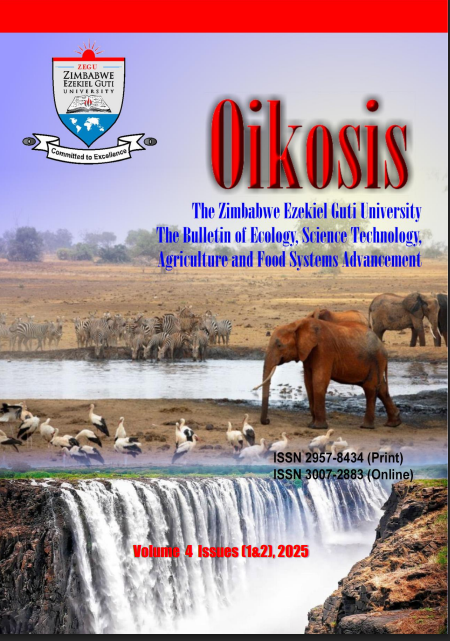Leveraging Digital Platforms to Promote Food Security and Sustainable Agriculture in Zimbabwe
DOI:
https://doi.org/10.71458/xmkxeb04Keywords:
Digital agriculture, Digital apps, Kurima mari app, Agrishare app, Productivity, Livelihoods, Challenges, Opportunities, Benefits, Digital transformation, Smart farming, Agri-ecommerce, Digital advisory, Value creationAbstract
Agriculture is one of the chief anchors of the Zimbabwe’s economy with a contribution of more than 9% to the GDP. The agricultural sector has faced unprecedent challenges which impacted the smallholder farmers’ ability to maximise their yields and, hence, revenues. Various challenges are impacting smallholder farmers' ability to effectively maximise their productivity on their land. The issues include limited access to markets, limited advisory services from agriculture extension officers, limited capital as well as logistics and procurement limitations. The digital agriculture platforms have emerged as the solution to tackle bottlenecks in agriculture extension services, access to markets, weather services, finance, procurement services and logistics. Welthungerhilfe (WHH) has been developing digital apps for smallholder farmers such as Kurima Mari and Agri-Share. These apps have been adopted with the objective of propelling the achievement of the zero hunger United Nations Sustainable Goals (SDG) through increased productivity, which culminates in higher yields and revenues. This study’s aim is to establish the extent to which WHH digital platforms are able to promote food security and sustainable agriculture through enhanced productivity and improved livelihoods amongst smallholder farmers. A qualitative approach to data collection through the use focus groups and structured questionnaires is employed. The findings reveal the capability of the digital agricultural platforms to solve key challenges faced by smallholder farmers. The study also establishes the relationship between the use of digital platforms and an increase in agriculture productivity, resulting in improved livelihoods of farmers. The study identifies the challenges faced by the farmers in utilising digital agric platforms. It also shows opportunities that can be exploited by the farmers through technology in driving sustainable agriculture.




